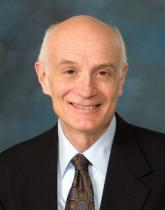News

Surgical educators flag training gaps
Major finding: Forty-three percent of incoming fellows in the nation’s surgical subspecialty programs were deemed by their program directors to be...
Everyone thinks of changing the world, but no one thinks of changing himself.
– Leo Tolstoy
It is with great personal interest that I read articles about the plight of general surgery, our residency programs, the demand for subspecialty fellowship training, and the havoc that has been wreaked on surgical training with the implementation of the 80-hour work week.
I completed general surgery residency and started private practice in the year 2000. In my residency, fellowship training was considered only by those who were interested in academic careers, or in careers in plastic or vascular surgery. I entered into general surgery private practice confident that my 1,000+ cases and 100+-hour work week training would serve me well at the start of my career. My confidence was justified. I was well prepared for a general surgery career in private practice.
What my fellow general surgery graduates and I did not anticipate was the growing pressure from the public, the hospital administration, and our own practices to specialize, to offer unique skills, to start a new service line or elevate a current one.
It seems at times that it is no longer sufficient to be a general surgeon. There is a growing perception that general surgeons must have a specialty focus. In my own practice I now claim to be "a breast surgeon during the day, but specialize in catastrophic and acute abdomens on nights and weekends." I have given up my vascular and thoracic privileges. I haven’t performed a Lap Nissen in 8 years, and although I feel I was adequately trained, I refer a Whipple to our hospital’s "pancreatic specialist" because it has been years since I have performed one. And this is only my first 13 years in practice.
We can blame the 80-hour work week, the residents and medical students for not being prepared, decreased operative cases, the increased number of fellowships, and new technology for this current situation. In lieu of placing blame and looking to the past, I strongly believe we need to take a close look at ourselves and the current state of general surgery and fellowship training in the United States. We need to look at the factors that are changing our professional milieu, in particular the incentives and disincentives our residents are facing in today’s surgical career environment.
In my large, busy private practice teaching hospital, I have the opportunity to teach and to speak with medical students starting on their first clinical rotation and also with chief residents completing their general surgery training, and now for the most part going into fellowships. Many of them now tell me that they are interested in general surgery but they want to have that "special focus" that will make them attractive to prospective employers. They are also concerned about the impact emergency room call will have on their families and personal life. After completing their fellowships, they often find they are no longer interested in general surgery and have chosen to completely specialize in their field of study. What are the perceptions of the real world of general surgery that are causing trainees to opt out of our field? This is the question I believe we need to ask.
In a national survey of general surgery residents conducted in 2008 (JAMA 2009;302:1301-8), we begin to get a glimpse into the thought processes of residents facing career choices. More than half agreed or strongly agreed with the statement that "the modern general surgeon must become specialty trained in order to be successful," and 64% believed it was necessary to complete a fellowship to be competitive in the job market. A majority (78%) agreed or strongly agreed that completing speciality training would result in higher income. Among survey respondents, 63% agreed with the statement that specialty training would mean a better lifestyle.
For the vast majority of surgery respondents, the decision to pursue speciality training was based not on a perceived need for additional surgical experience, as only 10% felt their operating skill level was not appropriate, but rather on economic and lifestyle considerations. Increasingly, entering college students are choosing their college and major based on these important factors. It would be unrealistic to expect otherwise for those pursuing a career in surgery. The enormous debt burden accrued during training is at the forefront of the minds of our residents. We can no longer disregard the economic and lifestyle impact of surgical career decision making. These factors, in addition to the strong demand for specialty training from the general public, I believe are much more important issues that impact our profession than the implementation of the 80-hour work week.

Major finding: Forty-three percent of incoming fellows in the nation’s surgical subspecialty programs were deemed by their program directors to be...
